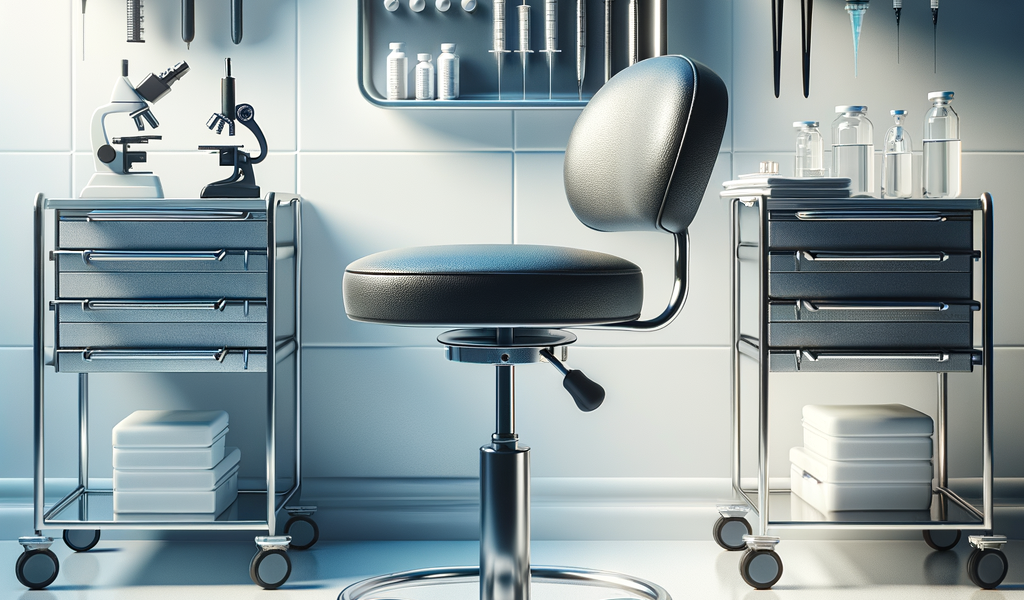In today’s fast-paced healthcare environment, where healthcare professionals are constantly on their feet attending to patients, the importance of ergonomic and comfortable seating cannot be overstated. Medical stools play a crucial role in providing the necessary support and comfort for healthcare professionals during long shifts, ultimately enhancing their efficiency and productivity.
Types of Medical Stools
There are various types of medical stools available, each designed to cater to different needs and preferences. Traditional stools offer basic seating, while ergonomic stools are specially designed to provide optimal support for the spine and promote proper posture. Rolling stools, equipped with wheels, offer enhanced mobility, allowing healthcare professionals to move around seamlessly.
Key Features of Medical Stools
Medical stools come with a range of features aimed at maximizing comfort and functionality. Adjustable height settings ensure that healthcare professionals can customize their seating position according to their needs. Swivel capabilities enable easy movement, reducing strain on the body. Cushioned seating and back support further contribute to overall comfort, especially during extended periods of use.
Considerations When Choosing Medical Stools
When selecting medical stools, several factors should be taken into account. Material quality, weight capacity, and mobility options are essential considerations to ensure durability and functionality. Budget constraints may also influence the choice of medical stools, although it’s crucial to prioritize features that contribute to comfort and ergonomic support.
Benefits of Using Medical Stools
The benefits of using medical stools extend beyond mere comfort. By providing ergonomic support, these stools help reduce the risk of musculoskeletal disorders such as back pain and neck strain. Improved posture leads to better alignment of the spine, reducing the likelihood of chronic health issues in the long run. Additionally, the enhanced comfort allows healthcare professionals to focus more effectively on patient care, leading to increased efficiency and productivity.
Impact of Medical Stools on Healthcare Professionals
The impact of medical stools on healthcare professionals is profound. By providing a comfortable and supportive seating option, these stools enable healthcare professionals to perform their duties more effectively while minimizing the risk of occupational injuries. Improved comfort leads to higher job satisfaction and overall well-being, ultimately benefiting both healthcare professionals and the patients they care for.
Case Studies and Testimonials
Real-life experiences of healthcare professionals highlight the significance of medical stools in enhancing comfort and efficiency. Testimonials from practitioners who have switched to ergonomic stools or invested in rolling stools emphasize the positive impact on their daily work routine. Case studies further demonstrate how the adoption of ergonomic seating solutions has resulted in tangible improvements in workflow and patient care.
Future Trends in Medical Stools
As technology continues to evolve, medical stools are expected to undergo further advancements. Integration with telemedicine platforms may enable remote consultations and virtual patient care directly from the stool itself. Sustainability efforts will also shape the future of medical stool design, with an increasing emphasis on eco-friendly materials and manufacturing processes.
Conclusion
In conclusion, medical stools play a vital role in enhancing comfort and efficiency for healthcare professionals. By providing ergonomic support and promoting proper posture, these stools contribute to a safer and more productive work environment. As healthcare continues to evolve, investing in quality medical stools remains essential for ensuring the well-being of both healthcare professionals and the patients they serve.
